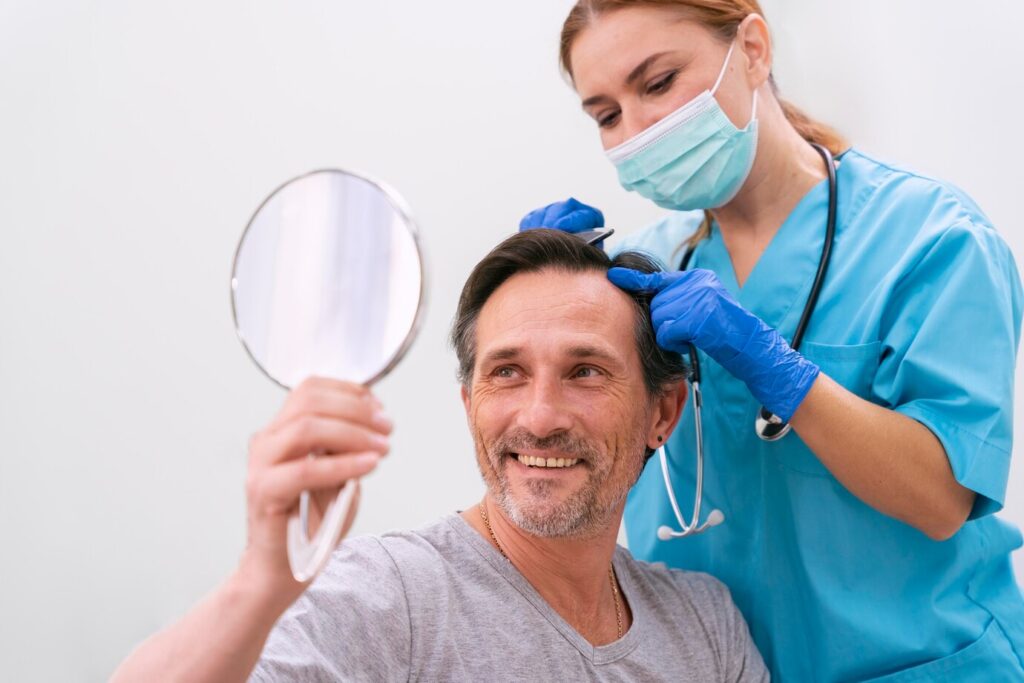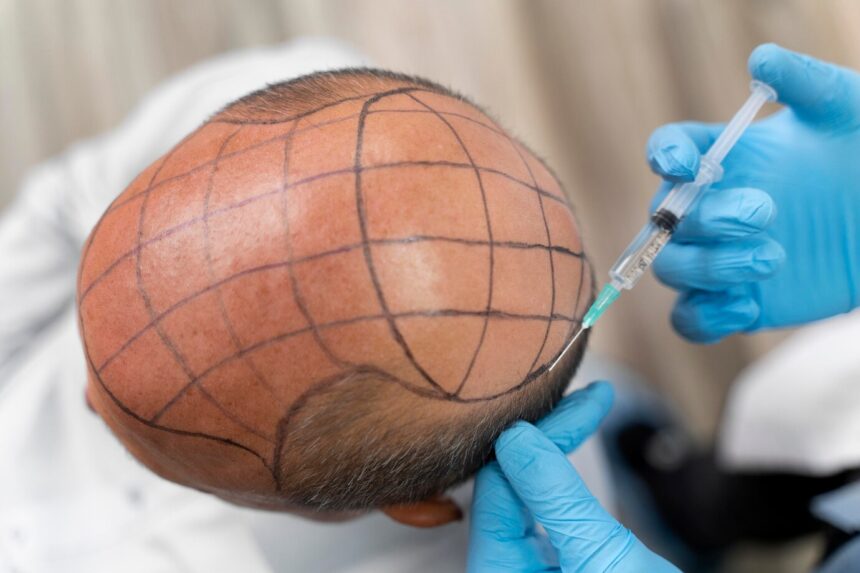Turkey hair transplant has become a popular destination for hair transplants due to its advanced techniques and experienced surgeons. Many patients choose this country for high-quality procedures at lower costs compared to Western countries. With various methods like FUE, DHI, and Sapphire techniques available, individuals seeking to restore their hair can find options that suit their needs.

The growth of Turkey’s hair transplant industry is supported by clinics that feature skilled doctors and state-of-the-art technology. Clinics like VeraClinic and Cosmedica Clinic are known for offering all-inclusive packages that cover everything from initial consultation to post-operative care. Patients often share positive results, showcasing the effectiveness of these procedures.
As the demand for hair transplants increases, Turkey continues to enhance its reputation in this field. Patients looking for reliable solutions can find a range of choices that balance quality and affordability, making it a prime location for hair restoration.
Key Takeaways
- Turkey offers advanced hair transplant techniques at competitive prices.
- Many clinics provide all-inclusive packages for a seamless experience.
- Positive patient outcomes contribute to Turkey’s growing reputation in the industry.
Understanding Hair Transplantation
Hair transplantation is a surgical procedure that helps restore hair in thinning or bald areas. It involves various techniques and careful planning to ensure the best outcomes for patients.
Basics of Hair Transplant Procedures
The hair transplant process begins by selecting a donor area, usually the back or sides of the scalp, where hair follicles are healthy. These follicles are then extracted and placed into the thinning or balding areas.
There are two primary methods for extracting follicles: Follicular Unit Extraction (FUE) and Follicular Unit Transplantation (FUT).
- FUE involves removing individual hair follicles, minimizing scarring and recovery time.
- FUT consists of removing a strip of scalp and dissecting it into grafts, which can be a faster method for larger areas.
After the procedure, there may be swelling or discomfort, but most patients can resume normal activities within a few days.
Types of Hair Transplant Techniques
Hair transplantation can be performed using different techniques, each with its own advantages.
- Follicular Unit Extraction (FUE): This minimally invasive method allows for precise extraction of individual follicles. It leaves tiny, dot-like scars that are less noticeable.
- Follicular Unit Transplantation (FUT): This method is suitable for patients needing a larger number of grafts. It can be more efficient but leaves a linear scar.
- Direct Hair Implantation (DHI): This technique uses a specialized tool to implant hair follicles directly into the scalp without the need for incisions.
Each technique has its benefits, and the choice often depends on the patient’s needs and the surgeon’s expertise.
Determining Candidacy for Hair Transplant
Not everyone is a suitable candidate for hair transplantation. The ideal candidate typically exhibits certain characteristics:
- Age: Most candidates are between 25 and 65 years old. Younger patients may need to wait if hair loss is still progressing.
- Hair Type: Candidates with thick, straight hair may achieve better results, as the density can provide a fuller appearance.
- Extent of Hair Loss: Individuals with stabilizing hair loss, identified through the Norwood scale or Ludwig scale, are better suited for the procedure.
- Health Conditions: Good overall health is crucial. Conditions like diabetes or bleeding disorders may complicate surgery.
Candidates should consult with a qualified surgeon who can evaluate their specific situation and provide personalized recommendations.
Turkey’s Hair Transplant Industry
Turkey has become a leading destination for hair transplants due to its skilled surgeons, competitive pricing, and advanced clinics. Many individuals travel to Turkey seeking effective and affordable solutions for hair restoration.
Reasons for Popularity in Turkey
Turkey’s hair transplant industry thrives for several key reasons:
- Cost-Effectiveness: Procedures in Turkey are significantly cheaper than in many Western countries. Patients save up to 70% on average without compromising quality.
- Expert Surgeons: Many clinics are staffed by experienced surgeons trained in advanced techniques. They often have international certifications and a strong track record.
- Comprehensive Packages: Many clinics offer all-inclusive packages. These packages typically cover not only the procedure but also accommodation and transportation.
- Advanced Technology: Clinics in Turkey often use state-of-the-art technology, ensuring better results and shorter recovery times.
- Medical Tourism Hub: The country attracts around 1.5 to 2 million medical tourists each year, supporting a strong reputation for quality medical care.
Choosing a Clinic in Turkey
Selecting a clinic is crucial for a successful hair transplant. Patients should consider the following factors:
- Research: Look for clinics with positive reviews and high ratings from previous patients. Online platforms can provide insights and testimonials.
- Accreditations: Check if the clinic is accredited by international health organizations. This can indicate a commitment to quality care.
- Consultations: Many clinics offer free consultations. Use this opportunity to ask questions and gauge the staff’s professionalism and attentiveness.
- Specializations: Some clinics specialize in specific techniques like Follicular Unit Extraction (FUE) or Direct Hair Implantation (DHI). Choose one that matches personal needs.
- Post-Procedure Support: Ensure the clinic offers support during recovery, including follow-up appointments and guidance on care.
Post-Procedure Care and Recovery
After a hair transplant, proper care is essential for optimal results. Here are important steps:
- Follow Instructions: Patients must follow the surgeon’s post-procedure instructions carefully. This includes guidelines on washing hair and using prescribed medications.
- Avoid Physical Activity: Strenuous activities should be avoided for at least a week. This helps prevent damage to the newly implanted follicles.
- Manage Discomfort: Mild discomfort is normal. Over-the-counter pain relievers can help manage any pain during recovery.
- Monitor Healing: Watch for signs of infection or unusual swelling. Contact the clinic if any concerns arise.
- Patience in Results: Full results may take several months to appear. This is a normal part of the hair growth cycle and should be anticipated.






